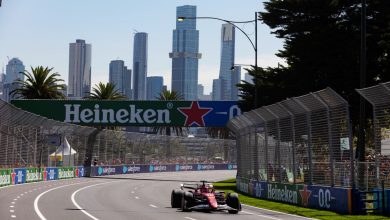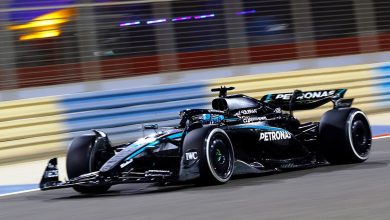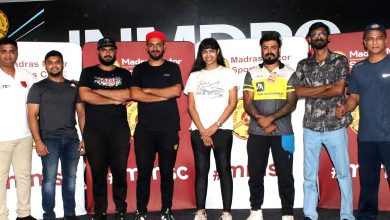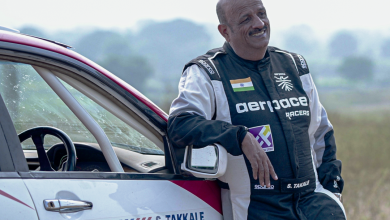Haas not happy with special status for Racing Point Force India: Friday press meet
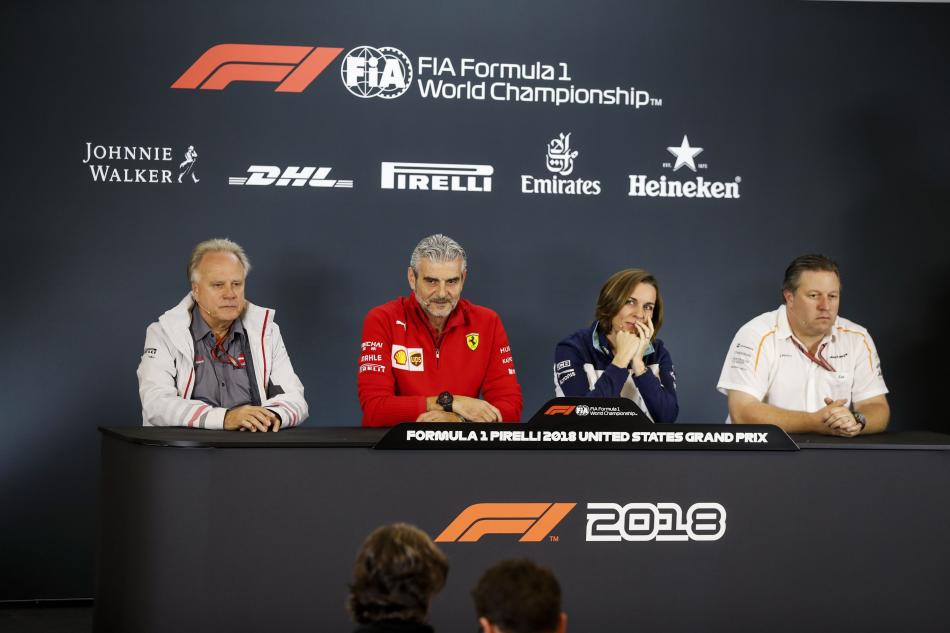

Austin, 19 Oct 2018: The FIA Press Conference for team representatives on Friday had Maurizio Arrivabene of Ferrari, Claire Williams of Williams, Gene Haas of Haas and Zak BROWN of McLaren as the 18th (of the 21) round of Formula One World Championship saw the free practice here on Friday.
Transcript:
Maurizio, please can we start with you? After Japan you said that Ferrari needs to challenge the impossible in terms of the title race. Is an unpredictable one like this one, with this weather, an opportunity to hit back?
Maurizio ARRIVABENE: You mean with the weather? I suppose. If you have a good car, the weather conditions, they are no influencing the performance of the car. With the sun, with the rain, you must always be into the situation where you are leading. So for us the rain is not really a factor that is going to determine the result. Of course it’s going to mix it up a bit more but it’s not the main concern.
Yesterday, in the press conference, Lewis sat where you are sitting now and reiterated his support for Sebastian, saying he had been perhaps unfairly criticised at times this season. What is your opinion of that?
MA: My opinion is that Lewis and Sebastian started in 2007 together, they are professional drivers and colleagues. I don’t want to get into the conversation in between the two drivers. It’s normal that being a Formula 1 professional that they are supporting each other, despite what they do at the track. In the track they fight like hell and out of the track they are colleagues and they are supporting each other. Having said so, you mention criticism. For sure the criticism to Sebastian they are not coming from the team, because I have said many, many times, we are winning and losing together. It’s not new news, but I would like reiterate that we win and we lose together – end.
Q: Thank you Maurizio. Claire, you recently announced George Russell as one of your race drivers for next season. Just what will George bring to Williams and why did you sign him?
Claire WILLIAMS: Yes, so we announced George last week and we’re very excited to do so. I think everybody regards George as an exciting talent. We have a few new rookies coming into the sport next year, which obviously is a great thing for the teams and for the fans. I think George’s racing pedigree really speaks for itself. He’s won the F4 championship, the GP3 championship and hopefully later this season he’ll win the F2 championship in Abu Dhabi. So I think his on-track prowess speaks for itself, but overall George, as a person, he’s a very impressive individual. He’s got a great personality. He really is truly determined. He knew exactly what he wanted going into 2019 and he’s got it, and we’re really excited to start working with him.
Q: George will be one of the drivers, but what about your second seat? Is there any news, and who is on your shortlist?
CW: No, unfortunately, we haven’t made that decision yet, we’re taking our time with it. We’re not in any mad rush. We have a few drivers on the list; clearly, I wouldn’t confirm who they are. But we are excited about that decision too, we have some exciting prospects that we are evaluating now. We’ve got a number of considerations to factor into that decision and we’ll make an announcement in due course; I’m hoping by the end of the season.
Q: Thank you very much. Zak, speaking of announcements, yesterday you announced that Coca-Cola will partner with McLaren until the end of this season. Just what are your hopes for that partnership?
Zak BROWN: We’re very excited to have Coca-Cola. They are one of the world’s most famous brands. I think they are a great entry into the sport. They will help bring a younger audience and great for McLaren. We’re going to be activating with them in the remaining markets and hopefully it will be a successful partnership that will go on into the future.
Q: Something else that McLaren has been doing a lot of this season is restructuring behind the scenes. You’ve made some big technical changes. Are all of those changes complete? Is everyone in the position that would like in position before 2019?
ZB: I’m very happy with the progress and the changes that we have made. I wouldn’t say it was complete. I think a Formula 1 is always reviewing and modifying on almost a race-by-race basis – not necessarily the team in the same way you would a race car – so we are where we wanted to be as far as who we’ve brought in and who we’ve promoted and excited for our future and hard at work on next year’s car, while trying to get the most out of this one here for the last few races.
Thank you. Gene, I think this is the first time we’ve had you in the press conference this season, so if we could just look back over the year, how do you reflect on Haas’ third season in F1 and has it exceeded expectations?
Gene HAAS: Well, this season I think we are stable. I think we’re more stable than we’ve been in the past. The faces are becoming familiar and I think that lends itself to communication, better results. Unfortunately, we haven’t had the results that we should have but the potential is there. I feel good about that. The partnerships we have are important but it’s becoming a little bit more transparent as to what our responsibilities are and what we have to do and the learning process has gone well. Unfortunately, we just haven’t gotten the results we should have had, even though we’re fifth in the championship. That by itself looks good. It kind of reflects on how much luck has do with it among all the teams when they are racing. It seems that especially in the mid-pack, who makes the least amount of mistakes is the one that comes out ahead.
You mention being fifth in the championship, but the fourth place does look like a realistic proposition over these last four rounds. If you were to achieve that, how do you then go about bridging the gap to the top three teams?
GH: Well, I kind of feel like we’re not really racing in Formula 1, we’re racing in Formula 1.5, so if we were to finish fourth then that would be a win in our series.
QUESTIONS FROM THE FLOOR
Q: Zak, you’re American, we’re in America and the big race in America is Indianapolis and McLaren would like to do Indianapolis and the Indycar series with Fernando. Any progress?
ZB: For the Indycar series, we’ve taken the decision to not compete on a full-time basis in 2019. We’re simply not ready yet and very focused on Formula 1. So we won’t be doing that in 2019. We do have a desire to do it, as I’ve mentioned before, in the near future. As far as the Indy 500 is concerned, it’s something that remains of interest to us. That will be a decision that ultimately we take in the off-season. I think it’s something that Fernando would like to do as well, but right now we’re still focused on Formula 1 and until we get a little bit of fresh air we’ll remain focused on that.
Q: For Mr Arrivabene. You always of course race to win. Now from Sunday to the last… the next three grands prix, you are kind of forced to win in order to keep alive the hope of winning the championship. In which way would change your, if any way, strategy or how you race these grands prix.
MA: It’s not a question of strategy. The question is to find the right balance in a car that in the last two to three races was not easy to manage – especially in relation to the slow-speed corners. I know that the numbers are all against us in terms of the Constructors’ and Drivers’ Championships, but our job is to go there, to go to the track, without giving up. We have done analysis in Maranello about the issue that we need to sort to be competitive in the next few races, including this one. We have most probably a certain answer and we will see in the next few days if instead of being a simple answer they are a solution.
Q: For Gene, Claire and Zak: a little earlier this season, over the summer, one of your midfield rivals, Force India, went through its process of falling into administration and then being rescued. When that happened there was obviously the slightly confusing situation about prize money – what they would and would not be eligible for. I just wanted to know, do you have a resolution on that. Is it a satisfactory resolution and if not what are you hoping will be the outcome from that?
GH: I think from the standpoint of being a participant in Formula 1, we’re just looking for an even enforcement of the rules. Like the stewards in a race they have to be non-judgmental and they have to enforce the rules in front of them and every team expects those to be evenly enforced, and our argument with Force India is: is it a new team or a continuation of an existing team, and that’s really where the stumbling block is. We went through the process of becoming a new team. We abided by the rules. The big one is the two-out-of-three-year rule and our argument is that if we had to go through that process we feel that with Racing Point if it’s a new team then it really should have to go through the same process we went through. So the question for FOM is: is it a new team or the continuation of an existing team. We think it’s pretty obvious to us it’s a new team and therefore should have the rules applied as per the Concorde Agreement.
Q: Claire, Williams’ position on this?
CW: Williams has signed the waiver that everybody knows about that would see Force India receive their prize money payments. We’re happy with that. I think from our perspective, the team is operating as it did prior to Lawrence buying it, acquiring it, and so we don’t necessarily consider it to be a new team, as such. I believe, as Gene just said, there are still some issues that need to be ironed out behind the scenes with FOM and the FIA. We’ll wait to see what happens.
Q: And Zak, your comments?
ZB: I agree with what Gene has said. Take a step back: obviously very happy that a Formula 1 team continues in business, that’s good for the sport, but what it did highlight were some of the governance issues and inconsistencies in the sport that need to be tackled moving forward. So I hope that what we do is we learn by this event and other events and not have things be chaotic, as it kind of was. There were different waivers flying around and it was in and it was out, it’s a new team, it’s not, and I think more than anything the sport needs to learn by some of these holes and get a better governance system in place.
Q: Maurizio, you’ve had a few strategic and operational snafus of late. Can you tell us, have you taken steps to try and solve those problems for this race and the remainder of the season? And do you also envisage having a much more intensive investigation into your structure for those kind of things over the winter?
MA: I mean, I already answered the question. I said, of course, if we are here, we were not sleeping the last few weeks. We were making an analysis, as I said before, to certain weaknesses that we notice in the last few races. We are taking here solutions – but it is the track that is judging if the solution is really a solution – or is not, for sure. We are here to compete, with a mission impossible, but working in this kind of environment, it’s our job.
Q: Claire, George obviously has a long-term Mercedes contract. Is that a factor for him arriving? Basically, shorthand for ‘are you getting a cheaper deal on the engines’? And secondly, the second drive, what are the financial considerations involved in that? Do you need someone to bring financial support with them – and would you be open to having two Mercedes-backed drivers in your line-up.
CW: George has obviously come up through the Mercedes young driver programme but that was not a factor in our decision-making. We purely saw a young talent coming up through the junior championships, as I think we all have. We’ve all recognised the talent that George has, and are probably all pretty excited about the talent that he has coming into this sport. So no, the Mercedes relationship wasn’t a factor. George has a multi-year arrangement with us moving forward and he will be a Williams driver during that period and will focus on being a Williams driver. There were no factors around financial considerations with Mercedes on making that decision. It was purely a decision made on the talent that George has. When it comes to the second seat, clearly as an independent team, and clearly, as everybody knows, independent teams in this sport haven’t had an easy ride over the past few years, the sponsorship landscape is pretty tough out there. The way that the prize fund distribution is at the moment in Formula One doesn’t make it easy, and not least coming tenth in the championship this year puts the squeeze on things a little bit – but we’re managing our finances pretty well, we’ll have a good budget going into 2019, it will be on par with the one that we have raced with this year – but there are a lot of considerations when it comes to choosing the driver for the second seat – but predominantly the main one has to be on talent.
Q: Gene, I’ve got to ask you, and tell you a little bit, there was a media representative about a year and a half ago, two years more like that, when we mentioned an American team coming to F1, she chuckled, as if it were a joke. You definitely demonstrated the prowess to be on the grid. This team has responded well. You started off with a single name on the car as Haas. We’re seeing it grow. Do you think that is also a reflection of the fan base that is growing in the United States?
GH: Well, it’s all be very positive, as far as the reception of the team and the name Haas Automation on the car. I’ve seen probably the most recognition over in the European markets. There’s a lot of brand name recognition. I was over in Tunisia, I was getting off a plane to go to one of our factory outlets and the person asked: ‘are you with the F1 team?’ which is pretty interesting in North Africa, so we’re getting good brand recognition there. Obviously there’s a huge fan base here in the United States. So, I think as far as my company’s concerned, it’s all been very, very good. Now we have brand recognition. People don’t necessarily know what we do – but at least they know the name. So from that standpoint, I think the enthusiasm of at least American Formula One fans, it’s really done well, really done well. I appreciate all the fans that support us and tell us that. If we can just get them to send us some money, it’d even be better!
Q: Maurizio, the last time Ferrari had an extended spell without championships was from 1979 to 2000 – 21 years. You’re heading for half that now, having won the last championship in 2008. With a budget cap coming, one of your major advantages, namely the team’s size, is likely to be reduced a fair amount. Can you see Ferrari not winning a championship for 21 years again?
MA: I’m here only since three-and-a-half years, I can respond for my period. I think the budget cap has nothing to do with the performance of the team because the performance is due to the quality of the work that you are doing, due to the professionalism and many other things. The budget cap, it could help to enhance the creativity of the guys: if you have talented guys in the team – and I’m talking about all the various areas, from the chassis, to to aero to the engine – for sure it’s a good thing to do because in the last five, six years, the amount of money teams are spending, it’s really important. These are important numbers. For a car manufacturer like we are, it’s also an investment, especially on the engine part, which can be transferred in terms of research and development and technology to the GT side. But we need to think also about the so-called small teams. I mean, the budget cap, it could be beneficial for us, and also for the teams, can reduce, a bit the gap but hoping
that means we keep the DNA of Ferrari and our focus is reducing cap but keeping up the performance and continue the research and development to be transferred into the GT side.
Q: In Trento a couple of weeks ago you said you were still not sure if you were going to stay at the helm of Ferrari next season. I was wondering if two weeks later there is any change in this decision? If you know already, or when eventually you would announce the decision?
MA: Every day I hear a different version of what I said in Trento! The latest one, that somebody, the public, said “yeah, you have to say”, I asked to the public, you want me say yes, you have to say it. Then I read, everybody said yes – but you must win. That was not true – because before I asked the question, half an hour before, somebody, talking about another subject said: “guys, when are you going to win?” Then they mix up the two. OK. This is a new version. Of course, when I answered the questions related to Juventus, so we are opening up another topic, I said that my future is in Ferrari – but it was the top management that have to give to me the final blessing. This is the answer.
Q: Mr Arrivabene, what will be the reaction of the team if Charles Leclerc can give Vettel a run for position next year? And Mr Zak Brown, letting go a two-times World Champion as Fernando, how will it change the team dynamics?
MA: I mean, I always said Charles is a very, very talented driver. It’s the reason we took him in Ferrari. I think, for the first time in the history, because you have to go back to the Rodríguez brothers that is similar to the one of Leclerc. I said he’s very talented, we took a decision, it’s more or less in line with the decision that all the other teams took. If you look at Mercedes, they took two years ago Bottas, that he was a kind of rookie coming from Claire’s team, Williams. If you look at the other teams, they have Verstappen, a young driver, McLaren the same, Renault the same, so we are more or less aligned. There is no novelty. I mean, it depends what you mean. These two guys, fighting together. Enzo Ferrari always said the first competitor of the driver is his team-mate. Until they are competitors, to try to gain the first and the second position is fine. If they are competitors who crash into each, this is not fine. But, in all honestly and seriously, I think Leclerc, he needs to gain experience to do the job. He needs to try to win races – but the main objective for him is to gain experience and always do his best. We are at the early stage to think that in the future they will fight head-to-head together. Hopefully yes – but I think it’s a bit early.
Zak?
ZB: Yeah, obviously Fernando’s an immense talent with a tremendous amount of experience. Of course, we’ll miss him in the garage but we have two outstanding talents, Carlos Sainz, who has some good experience in Formula One, so while young, he has good experience, and Lando Norris who we think is a great talent who is going to need to get experience – which is what we’ve been giving him in free practice one these last few races – and he has done an excellent job, so we’re very excited for our driver line-up for next year.
Q: The new budget cap’s coming in. Do you really think this is the magic bullet which is going to put you all on the same plane? Zak’s talking about competing in F1.5. Do you think it’s going to bring a level playing field to the teams, because you should all be able to make the budget caps, or is there something else missing from the seven smaller teams?
GH: Well, when I watch some of the races and I see how fast the top three teams just blow by us on the racetrack, you’re just somewhat aghast: wow, how do you we miss that? I don’t know how those cars are so much faster but if I talk to Ayao (Komatsu) and he’ll tell you ‘you’ve got a couple of tenths on your tyres, you’ve got a couple of tenths on your aero, your chassis is off a couple of tenths and there’s your second or two’. I know that we’ve put a huge effort into trying to address all those parameters but I just don’t see how we’re ever going to make up a second and a half, two seconds off of these guys. They are just so much faster than we are and it’s evident in the race. Will budget cap help? Probably if it reduces the size of their R&D department. I guess for every person we have they have five people. Personally, I would think that five people would make it more confusing but it does seem to work. If there’s anything that can reduce that gap between the technology they have and what we don’t have, that would probably be very helpful. How you go about doing that without the bigger teams somehow have workarounds I don’t know. There’s something wrong that… I don’t think we can ever make up that gap.
CW: Yeah, I would tend to echo what Gene has said, that there’s unfortunately no way that teams like mine, anyway, that are operating on a budget of around 120m could even consider competing to win races or World Championships against the likes of Ferrari, Mercedes, Red Bull, that are spend at least two if not three or four times the budget that we are. For me, that’s not a level playing field and for me, at any rate, that’s not how competitive sport should be. It shouldn’t be about the money that you have, it should be about the talent but talent only takes you so far when teams are outspending you three-to-one. So I am very much looking to the budget cap coming in but I also believe that there’s a whole lot of other work that we need to do in order to make sure that this sport has a sustainable future and one that probably matches the DNA that this sport has grown up with over the past fifty years, that we tend to be veering from at the moment, in my opinion.
ZB: I pretty much echo the same thoughts. I don’t think there’s a silver bullet in anything but I do think the budget cap can play a significant role in balancing the playing field. You also need to do that by having the right regulations moving forward which is something that we’re all very active on but if you do look at the sports, most of them have some sort of budget cap, salary cap and probably one of the most successful being the NFL where everyone’s pretty much on a level playing field and that’s where you see the upsets and the surprise champions and I think that would be healthy for the sport. I still think, at the end of the day, the best teams will rise to the top but it would be good to have some more unpredictability in the sport and have a chance to get back on the top step of the podium.
MA: I think from the financial point of view, of course reducing the cost is always more than welcome. It’s not related to the what, it’s related to the how. If reducing costs means equalisation it’s not for us. Standardisation is one thing, equalisation is another so equalisation is not in the DNA of car manufacturers. Reducing costs? Of course it is, that’s normal but I’m not telling you something new. We always stick to this point, to this direction. The problem is a bit more than the simple question related to the budget cap, that as I said, is very important. The question is related to the overall F1. What we want to do, to increase the interest in the sport, we need to analyse the mistakes of the past, to look forward for solutions in the future and this is also very important and to be honest, with ourselves: how is the level of interest to Formula One versus yesterday? What do we need to do? It’s not the budget cap, it’s one of the solutions but it’s the solution. We need to go back and to re-launch the sport. Launching the sport is kind of complicated and a complex equation but it’s something that we absolutely need to do and analysing also the audience that we have. If at a certain point you have an audience that is becoming older, older, older and you work to retain what you have and (Inaudible) to acquire – I’m talking about the past – and your attention is less focused on acquiring the young generation, this means that you have a problem. If you have a problem, you need to find a solution and the solution is not only related to the budget cap that I underline is important, it’s very very important, but it’s not the only one solution. In terms of competitiveness within the teams, OK, we mentioned NFL but I am European, I mention football. For example, how can you tell to Real Madrid ‘sorry, if you play with – I don’t want to mention a small team – don’t play with your best team, play with your middle team.’ Come on, it’s ridiculous. The sport is done also by the big teams which are participating in the sport and it’s part of the fascination of the sport. In the last few years in Formula One, we saw Ferrari at the time of Jean Todt and Michael Schumacher that they were winning for years. Afterwards, we had the period where Red Bull was winning for years and nobody complained. In the meantime we never focused our attention on the audience and the audience, little by little, became older. This is the exercise that we need to look at. Our competitor today, in my opinion, it’s my personal opinion, they are the Playstations. If you look at Gran Turismo, most probably we need to switch our minds and focus our attention on our competitors. Today we have a broad offer of entertainment and we need to look at everything, not only certain sports and try to equalise everything. Is Playstation a competitor? In my opinion yes. What do you have to do to beat the PlayStation? You have to do something that is more interesting, most probably. It’s not a detailed answer to the question but we need to the direction our attention to the entertainment industry and today what they offer is bigger than many many years ago. And then you need to ask why other sports – and let me underline football – they are still big numbers – even if they sometimes face the crisis – versus us. It’s an enormous and transparent exercise and then you apply the Ryder Cup, you apply whatever you want because if you save money it’s always perfect, everybody is happy. But as I said before, standardisation doesn’t mean equalisation for us.
Ends




